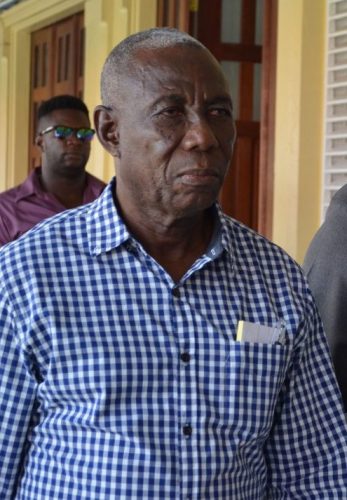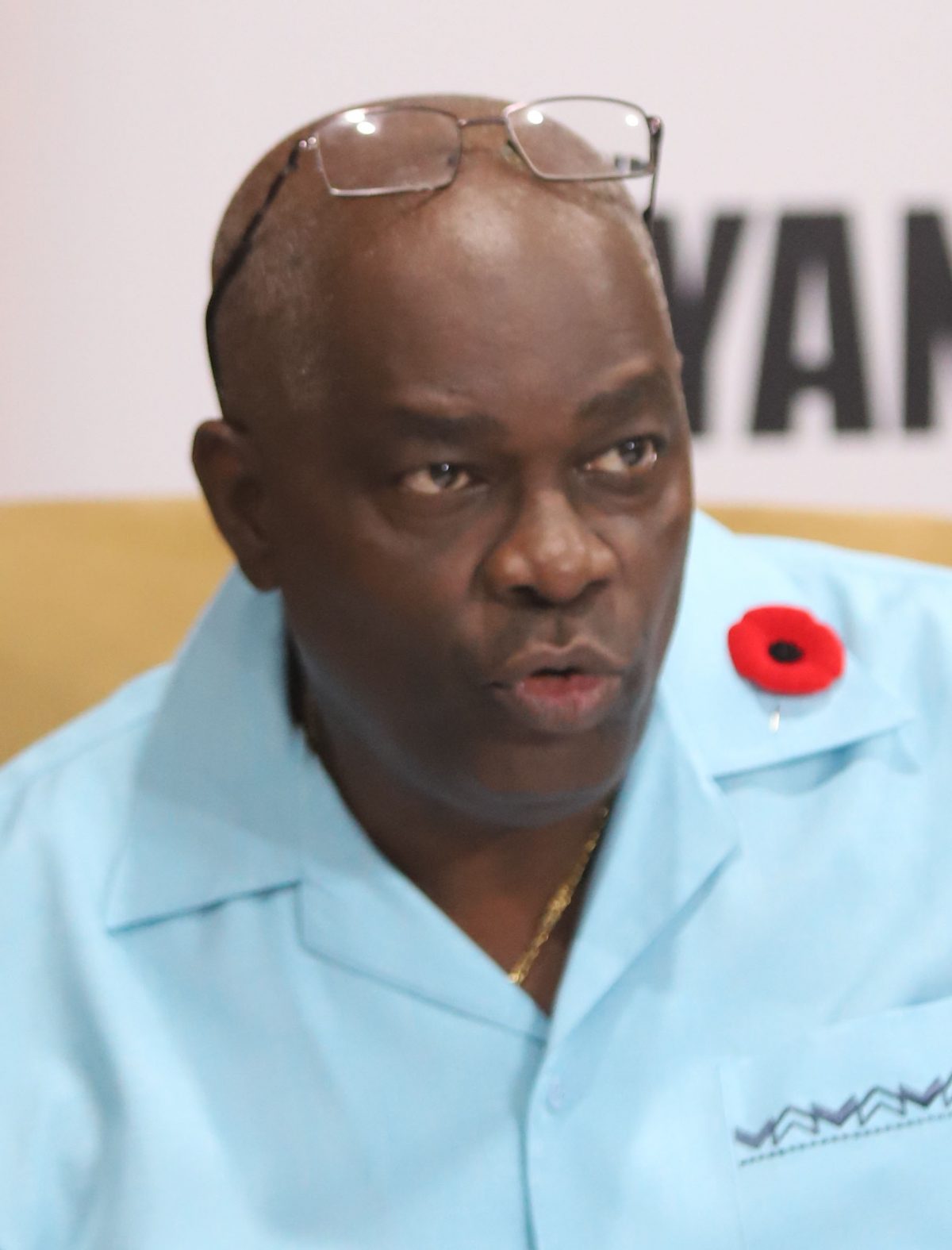Today’s statutory meeting of the Guyana Elections Commission (GECOM) will see members if the Commission finally debate three motions for the immediate dismissal of senior officers including Chief Election Officer Keith Lowenfield.
The motions which were tabled on June 1 accuse Lowenfield, Deputy Chief Election Officer (DCEO) Roxanne Myers and Region Four Returning Officer (RO) Clairmont Mingo of acting in a manner which has caused a loss of public confidence and public trust in the electoral process.
They were each informed of the motions via letter from the GECOM Chair and given until last Tuesday to respond to the allegations.

Stabroek News understands that all three officers have complied with the request.
So far there is no indication that any of the six members will be absent so it is unlikely that last week’s cancellation will be repeated.
Last week’s meeting was cancelled after two opposition-nominated members, Commissioners Vincent Alexander and Charles Corbin requested permission to attend the funeral of long-time PNCR member Winston Bentham.
According to Commissioner Vincent Alexander he informed GECOM Chair, ret’d Justice of Appeal Claudette Singh that he had been asked to deliver a tribute at the funeral which was scheduled at the same time as the meeting and therefore asked to be

excused from the meeting. Commissioner Charles Corbin also chose to attend the funeral depriving the Commission of the quorum necessary to proceed.
Alexander also raised questions about the motion stressing that they might be prejudicial to the criminal cases being mounted against the officers.
“The Lowenfield matter should be subject to legal interrogation…There are a lot of legal intricacies in the charges brought against Lowenfield which have to be interrogated. Those can best be done by a Court of law rather than in a situation where people don’t want an interrogation but prefer a vote on the matter. Any wise organisation would wait for the Court to pronounce on the matter as many organisations have done before. [The motions] can be seen as looking to pre-empt the court and thereby act in a manner prejudicial to a matter that is sub judice”, he concluded.
Government-appointed commissioner Sase Gunraj disagreed. He argued that criminal proceedings are separate and apart from disciplinary proceedings regarding an employee.
“The law specifically states that they are subject to the direction and control of the Commission. As a consequence, we are not constrained from engaging in any process that we see fit,” he pronounced.
This has also been the position of Attorney General Anil Nandlall SC. In a recent letter to this newspaper he stated “The truth is that there is sufficient evidence within the personal knowledge of the Commission, including acts of attempted fraud, dishonesty, insubordination and wilful refusal to comply with clear statutory provisions, that ought to render these persons dismissed, instantaneously with cause, over nine months ago! In this regard, the Commission itself is guilty of dereliction of its constitutional duty to the people of Guyana for not acting decisively and condignly on this matter. But that is a debate for another time and place.
“This reckless critic of the GECOM Chairperson’s actions blatantly refuses to recognise that both the Constitution and the Elections Law Amendment Act expressly mandate that its employees are to be hired by the Commission and must remain, at all times, subject to the direction and control of the said Commission. During the ‘’5 months of madness’’ when the Chief Election Officer went rogue, the High Court, the Court of Appeal and the Caribbean Court of Justice pronounced that he is not a ‘’lone ranger,’’ but subject to the direction and control of the Commission, citing the very constitutional and statutory provisions to which I have made reference. The Courts further emphasised that the Commission reserves the power to discipline and dismiss officers as it sees fit. There is no obligation known to law which enjoins the Commission to await the determination of any criminal proceedings before it activates its lawful powers of dismissal”.










